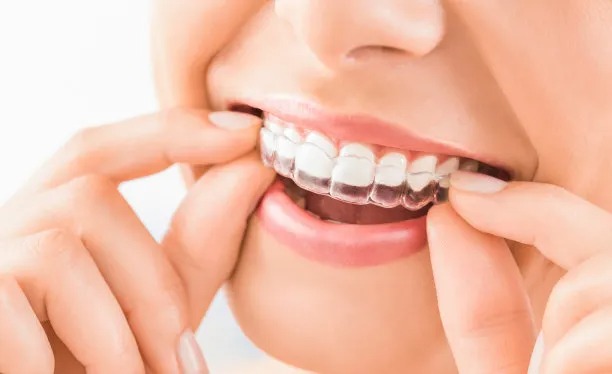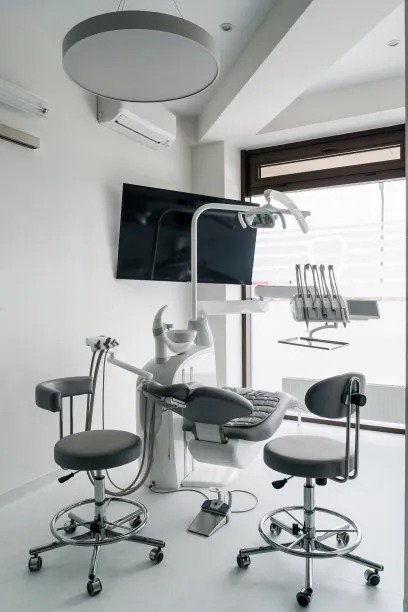Summary: This article delves into the transformative world of dental implants, outlining their significant role in improving oral health and aesthetics. It will cover the basics of dental implants, their various types, the procedure involved, and the numerous benefits they offer. With a focus on understanding dental implants, this comprehensive guide aims to enlighten readers about how these innovative solutions can revolutionize smiles and enhance overall well-being. The content is designed for anyone considering dental implants, providing a detailed overview to make informed decisions about their oral health.
1. Understanding Dental Implants Basics

Dental implants are advanced solutions designed to replace missing teeth effectively. They consist of titanium posts that are surgically placed into the jawbone, acting as artificial roots for artificial teeth. The key advantage of implants is that they offer a permanent solution, unlike dentures or bridges, which may require replacement over time. With proper care and regular dental check-ups, implants can last for many years, making them a worthwhile investment.
Various components comprise a dental implant system: the post, the abutment, and the crown. The post is the element that integrates into the jawbone, while the abutment connects the post to the crown, the top part that resembles a natural tooth. Understanding these components helps patients grasp how implants function and their importance in maintaining oral health.
Moreover, dental implants are compatible with most patients, with few exceptions. Factors such as bone density, general health conditions, and oral hygiene can influence a patients candidacy for implants. Therefore, a thorough consultation with a dental professional is essential for assessing individual needs and determining the most suitable approach.
2. Various Types of Dental Implants
Dental implants come in different types, each tailored to address specific patient needs. The most common types include endosteal implants, subperiosteal implants, and zygomatic implants. Endosteal implants are the most prevalent and are surgically placed directly into the jawbone. These implants are highly favored due to their strong support and stability.
Subperiosteal implants, on the other hand, are placed on top of the jawbone but underneath the gum tissue. They are often recommended for patients who may not have sufficient bone structure to support endosteal implants. Zygomatic implants are the least common but are designed for patients with significant bone loss in the upper jaw, providing an alternative anchor point for dental restoration.
Choosing the right type of dental implant depends on various factors, including jawbone condition and individual dental needs. A qualified dentist can evaluate these aspects and recommend the most appropriate implant type to ensure successful integration and functionality.
3. The Dental Implant Procedure Explained
The dental implant procedure generally involves several steps, starting with an initial consultation where dental professionals assess a patients oral health and devise a customized treatment plan. Imaging techniques, such as X-rays or CT scans, may be utilized to evaluate jawbone health and determine the precise placement of the implant.
Once the assessment is complete, the next phase is the surgical placement of the implant. This process is performed under local anesthesia to ensure patient comfort. After the implant post is securely placed in the jawbone, a healing period follows, usually lasting a few months, during which osseointegration occurs—when the jawbone fuses to the implant, providing a solid foundation.
After successful healing, the final step involves attaching the abutment and creating a custom crown that matches the surrounding teeth. The result is a restored smile that feels and functions like natural teeth, offering both aesthetic appeal and improved functionality.
4. Benefits of Dental Implants for Oral Health
Dental implants provide numerous benefits that significantly enhance overall oral health. Firstly, they improve chewing efficiency and enable patients to enjoy their favorite foods without discomfort. Compared to traditional dentures, which can slip and cause irritation, implants offer a stable, functional solution that allows for better dietary options and nutrition.
Secondly, dental implants help preserve jawbone integrity. When a tooth is lost, the underlying bone may begin to deteriorate due to lack of stimulation. Implants stimulate the jawbone similarly to natural tooth roots, preventing bone loss and maintaining facial structure, thus reducing the risk of sagging or premature aging.
Lastly, the psychological impact of dental implants cannot be overlooked. Many individuals experience enhanced self-esteem and confidence as implants restore their natural appearance and improve their smile. This newfound confidence can lead to better social interactions and overall quality of life.
Summary: In conclusion, dental implants represent a revolutionary approach to restoring smiles and enhancing oral health. Through understanding the basics, exploring various types, detailing the procedure, and recognizing the numerous benefits, it is clear that implants can significantly improve a patient’s quality of life. For anyone considering this option, consultation with dental professionals is the first step towards achieving a healthier, more confident smile.
This article is compiled by Vickong Dental and the content is for reference only.
Vickong Dental
Vickong Dental is a large medical group established in Hong Kong in 2008 by professors from well-known medical universities in Guangdong and Hong Kong, as well as medical doctors from key national '985' universities (including Master's supervisors and senior professors). The chain of branches brings together expert dentists with PhDs and Master's degrees from Hong Kong and Mainland China, committed to providing high-quality dental treatment.
"Vickong Dental Practices the University Motto of 'Healing and Serving Society,' with a Stable Operation for Sixteen Years. It Has Been honored with Hong Kong Enterprise Leaders's Choice,' and is a Global Trusted Implant Center for the Nobel Implant System. Recommended by Hong Kong Metro Broadcast and Guangdong Television, it Serves Customers from Over Thirty Countries and Regions, Gaining the Trust and Favor of Citizens from the Guangdong-Hong Kong-Macau Greater Bay Area and Surrounding Cities.

Thousands of customers' unanimous praise
The most recognized and highly recommended dental service by customers in the Guangdong-Hong Kong-Macau Greater Bay Area
We Ensure You Receive Detailed Care and Attention Here
Hong Kong standards, Shenzhen prices, Your Trusted English-speaking dentists

Vickong Dental Medical-Grade Instrument Disinfection Process
Vickong Dental Medical-Grade Instrument Disinfection Process

Vickong Dental Chain: A Warm and Comfortable Environment for Treatment






Appointment Hours

Q&A
Why choose Vickong Dental?
Vickong Dental practices the university motto 「Medicine to Benefit Society」, with each branch bringing together highly qualified dentists with doctoral and master’s degrees from Hong Kong and the Mainland, and has maintained seventeen years of steady operation。Recipient of 「2024 Hong Kong Enterprise Leaders Brand」, 「2025 Hong Kong Enterprise Leaders Brand」, a Nobel Biocare Global Trusted Implant Center, and a brand recommended by Metro Radio Hong Kong and Guangdong TV。
To date, we have served customers from more than thirty countries and regions,earning exceptionally high word-of-mouth recognition and trusted recommendations from residents across the Guangdong-Hong Kong-Macao Greater Bay Area and surrounding cities
We have eight major branches in Zhuhai、Shenzhen,and a consultation and service assurance center in Hong Kong,so you can book a free consultation at any time for any questions,which is very reassuring.
If I do not accept the quotation after the CT scan, will I be charged??
No! As long as the actual treatment has not started, you will not be charged any fees.
Will there be any additional charges during the treatment process?
No, there won’t be any additional charges. Before treatment begins, we will clearly explain the treatment plan and its corresponding fees. Only after the patient agrees and signs the consent form will we proceed with the dental service.
Can I pay in Hong Kong dollars?
Yes. Vickong Dental accepts payment in Hong Kong dollars. The amount will be converted based on the exchange rate of the day, and the applicable rate will be clearly communicated to you in advance.
Can I reschedule my appointment at any time?
Yes. Please contact us via **WeChat** or **WhatsApp** as early as possible, providing your original appointment time and details, along with your preferred new date and time slot for rescheduling.













